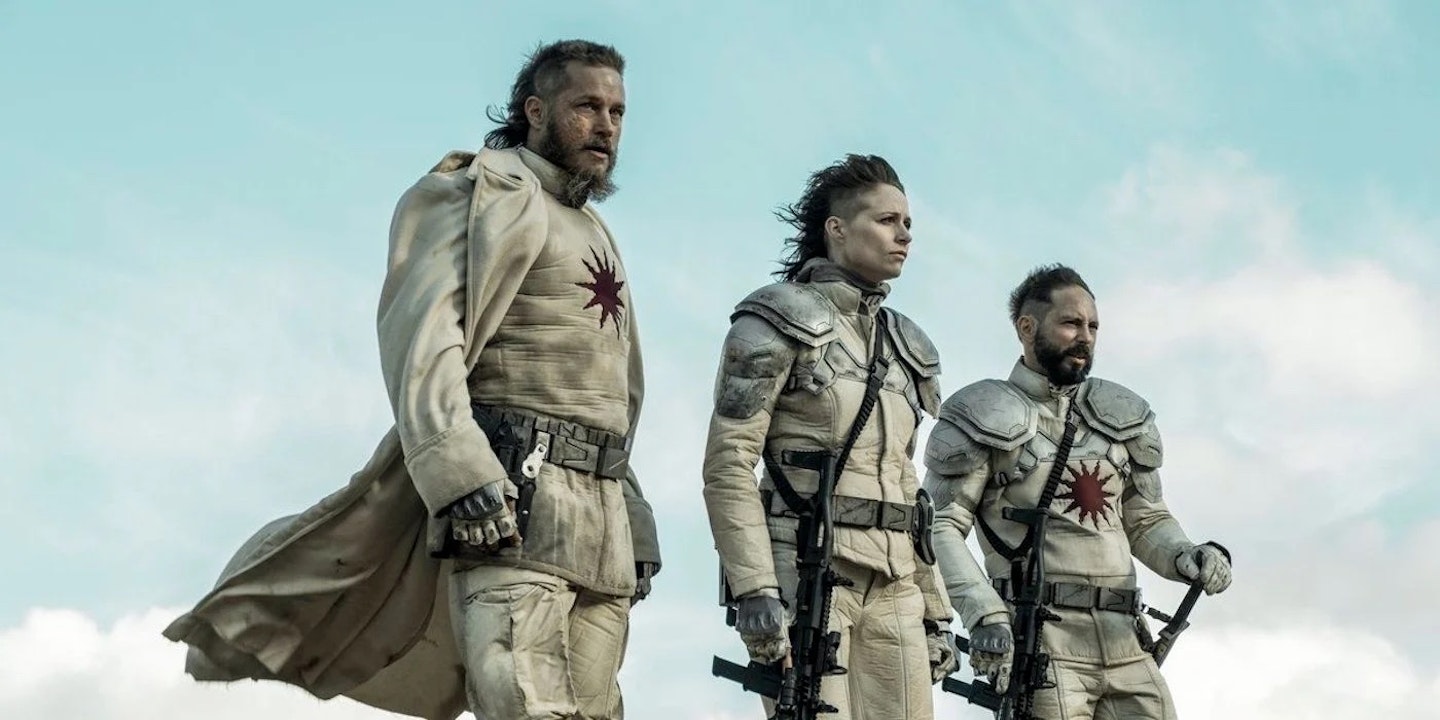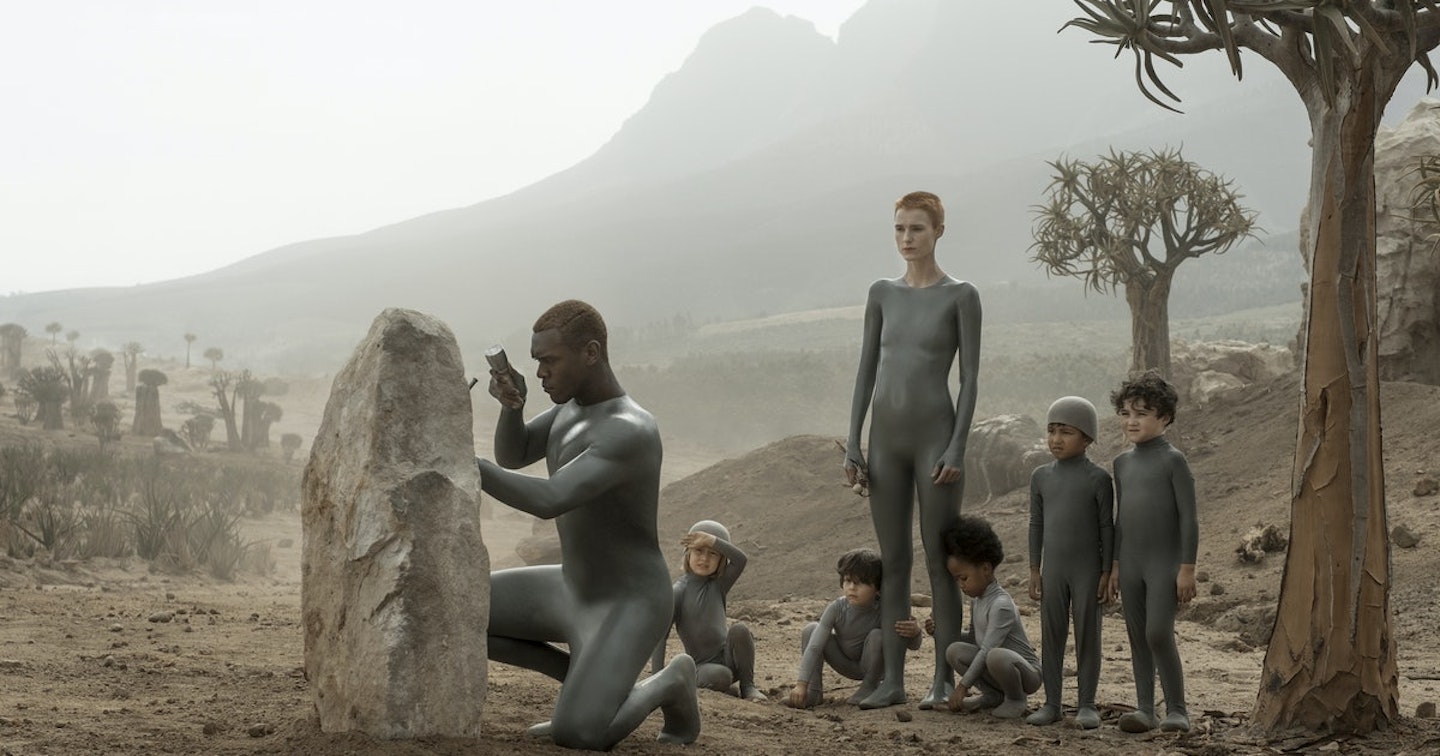Giving Ridley Scott a sack of cash and allowing him to noodle the philosophy of the human condition via the medium of science-fiction is surely among the safest bets a studio can make. However, while Raised By Wolves’ android-centric story might evoke notions of Blade Runner, its Prometheus’ presence that is most keenly felt as we explore the barren, hostile landscape of Kepler 22b. As executive producer and director of the series’ opening episodes (son Luke Scott directs two more), Scott leans into the hard sci-fi he dabbled with in his divisive Alien prequels, putting his stamp on a story by Aaron Guzikowski (Prisoners, The Red Road) that’s equal parts castaway yarn and unorthodox parenting drama.

A far cry from either the neon-drenched streets of Deckard’s LA or the sulphurous pools of LV-223, Kepler is a desaturated, almost monochrome wasteland. The androids arrive in a no-frills, pill-shaped vessel, wearing grey rubber onesies and phallic caps that do little justice to the show’s not insignificant budget. Scott sets an aesthetic that remains deliberately bare-bones and austere throughout, capturing the planet’s harsh environment (shot on location in Cape Town) as the androids attempt to eke out an existence while nurturing their clutch of infants. The limited palette expands only slightly with the arrival of the Mithraic ark, and then primarily via arterial red.
When our Silicon Family Robinson (programmed by Earth’s atheist faction and raising their children accordingly) encounter the zealous believers, the show’s mythology begins to properly unspool, and we’re taken on a journey that explores what it means to be a caregiver, the role of belief and the finer points of human nature. None of these ideas feel particularly fresh, nor ground Scott hasn’t covered in more depth elsewhere. The story also moves at such a ponderous pace that it at times feels more like guided meditation than actual entertainment. It doesn’t help that, bar Father (Abubakar Salim) being programmed with a penchant for terrible dad jokes, the show is entirely humourless, plodding along with a dour nihilism that often makes the atmosphere as spartan and unwelcoming as the environment.

The saving grace, however, is Mother. Amanda Collin is completely captivating as the cold yet nurturing android matriarch, who switches from loving to absolutely terrifying in the blink of her weaponised eyes. The true nature of Mother (a retrofitted ‘necromancer’ android designed as a weapon of war) swiftly becomes the story’s most compelling element, with all else (including Niamh Algar and Travis Fimmel’s B plot as atheists posing as believers) rattling along some distance behind.
Collin alone is enough to keep most viewers coming back for more, but anyone hoping the pilot’s deliberate pacing will eventually pick up is in for a disappointment. What the show lacks in velocity, however, it does make up for in demented plot turns. As the story progresses, we’re exposed to a space rapist in an iron mask, stolen eyeballs, flying statues, screams that liquify people and radioactive cucumbers. All building to an Episode 10 finale that is so mind-bendingly batshit, it almost ensures viewers will return for Season 2 just to find out what the hell is going on.
